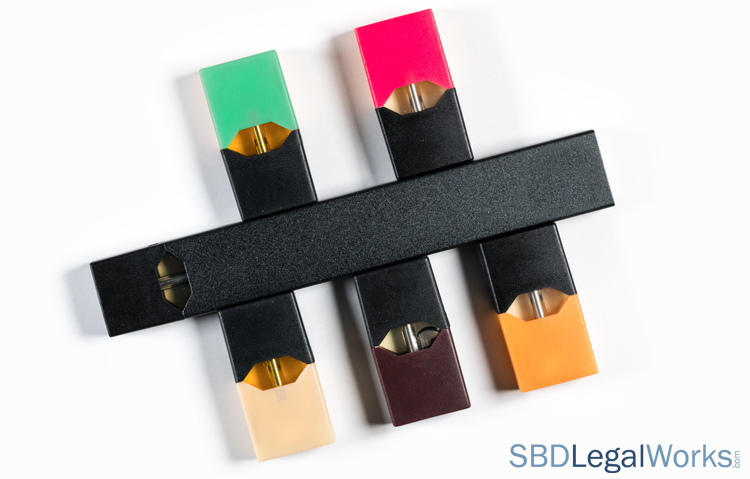
A lawsuit between Juul Laabs, an e-cigarette company, and the state of North Carolina has reached a settlement. The Juul lawsuit was settled with the company agreeing to a $40 million payout and a consent order outlining changes in the way their product is marketed. The state says the money will be paid out over 6 years and go towards helping young people who may have become addicted to e-cigarettes, or “vaping,” as it’s commonly referred to.
The state’s complaint against Juul dealt with its marketing toward underage consumers and the resulting consent order deals with marketing and selling to those under the age of 18. Juul agreed to using an age-verification system of identification at all places where their products are sold. They further agreed to a retailer compliance program, wherein mystery “shoppers” will be used at 1,000 stores per year, to make sure no outlet is selling the products to minors.
Juul also used a “fruity” type of flavor to make their vaping products more attractive. Following the consent order, the company can no longer make e-cigarettes that include mint, mango, crème brulee or any other flavor, unless they get prior approval from the Food & Drug Administration (FDA).
North Carolina attorney general Josh Stein also won significant restrictions on Juul’s marketing practices in the consent order. The firm may not use anyone under the age of 35 in their advertising, lest the ad be perceived as appealing to young people. They are flatly prohibited from buying outdoor advertising near schools and on social media. There are other restrictions regarding ads at sporting events and concerts, and the marketing they do run may not claim that vaping is better for one’s health than the traditional tobacco cigarette.
The lawsuit and settlement come in the context of health officials having concern over the popularity of vaping. Government data shows that more than 25 percent of high school students have used an e-cigarette in the past month. By comparison, that figure was less than 12 percent in 2019. Furthermore, the Centers for Disease Control & Prevention (CDC) says that vaping is showing to be an indicator of who is more likely to smoke traditional cigarettes sometime in the future.
This is a lawsuit that was filed back in 2018 and over the course of the proceedings, Juul was caught destroying documents and ignoring court orders. The firm already faced steep fines for those transgressions and the settlement served to take those off the books.
Juul, however, doesn’t see the settlement as a sign of wrongdoing. Rather, the company said through a spokesman: “This…is consistent with our ongoing effort to reset our company.”
The state of North Carolina, naturally, sees the outcome differently. “North Carolina is now the first state to hold Juul accountable for its instrumental role in sparking the epidemic of youth vaping and its resulting nicotine addiction,” Stein said in a press release following the settlement.